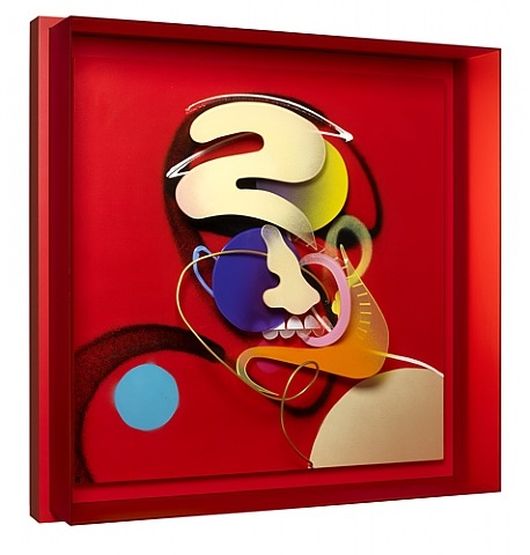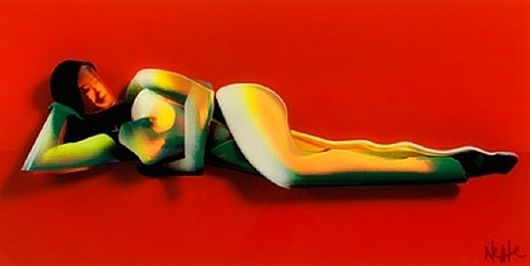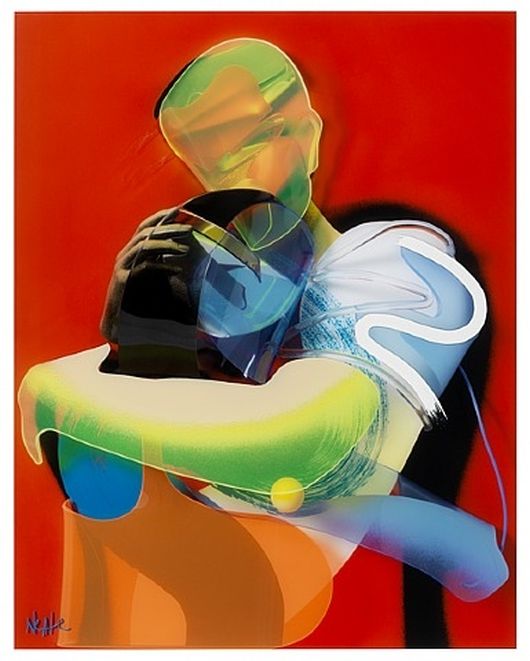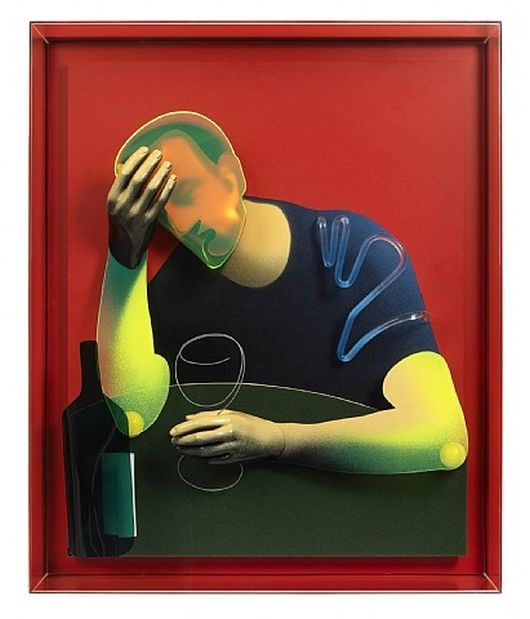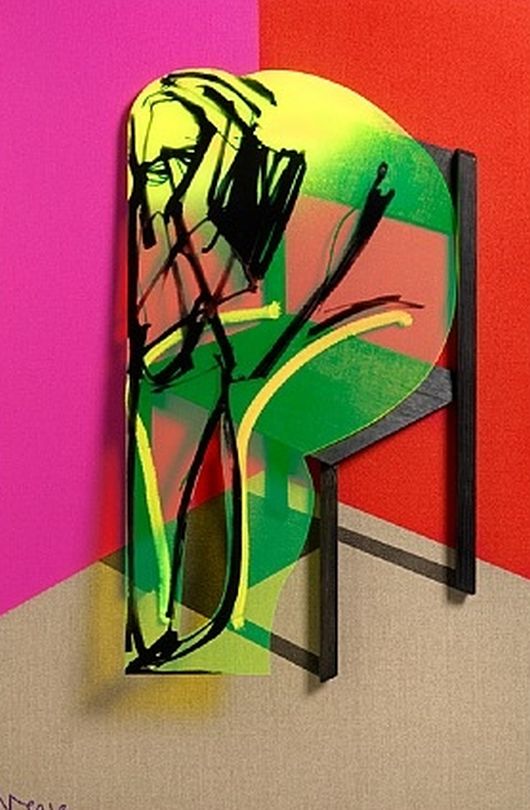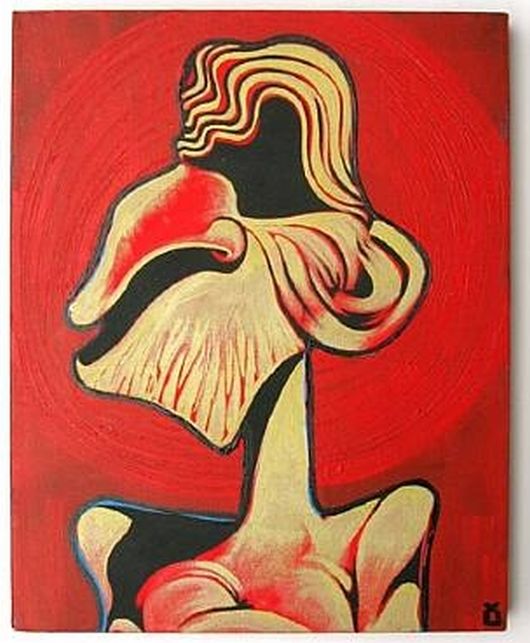 NEW YORK
NEW YORK In Which We Meet Someone New And Ill-Advised
 Friday, December 28, 2012 at 11:21AM
Friday, December 28, 2012 at 11:21AM 
The Weight of What Happened
by LUCY MORRIS
I began 2012 with a literal lump in my throat.
The doctors at the Duane Reade clinic I went to did not know how to remedy it. They gave me horse pill antibiotics and steroids to take on a staggered schedule but nothing stopped the swelling. “Call 911 if you can’t breathe,” one concerned doctor said, but how I was supposed to make the call if I couldn’t breathe he did not explain. For weeks my fever soared, eventually getting so high I hallucinated several extra characters into the short story collection I was reading. Late on those early February nights, a guy across the country sent me drunken texts I could barely decipher but in my haze I answered them anyway, surprised, in the morning, to see what dialogue we had in each of our respective stupors produced.
On Valentine’s Day a doctor stuck a needle in my throat and drained what had turned out to be an abscess. Afterward I sat in the Hot & Crusty on First Avenue, my hands shaking from dehydration and in relief, while I downed bottles of Vitamin Water. When I got home my first grad school acceptance was waiting.
I knew by March that I’d be leaving New York in the fall. I treated the departure as imminent, pacing up and down Fourteenth Street counting every step, every sentence. That whole spring I hovered mentally somewhere above Ohio, equidistant between where I was and where I was supposed to be going.
2012 was the first year since I was a teenager that I didn’t have a boyfriend but I had something better, I had my friend Jeanne. One, two, three nights a week, she’d come over after work with a bottle of wine and groceries and we’d cook dinner together and curl up on the couch with our plates and glasses to talk through the minutiae of the last 24, 48, 72 hours. It was a routine I’d shared with several boyfriends but I didn’t remember it feeling as complete as this for so sustained a period, the full bellies, full hearts, and full conviction that no one, anywhere else on the island of Manhattan and beyond, was having as much fun as we were.

For a long time I had assumed that the people who got you through the night and brought you breakfast the next morning were the people you dated, because for a long time for me they were, but this year, for the first time since romantic relationships became a possibility, I began to understand the inadequacies and limitations of that particular arrangement. Now it seems to me that there are people who sustain you and people who sleep with you and often those are one and the same, but just as often, maybe even more often, they are not. I confess that it is these latter love stories, the platonic ones, that interest me now more than any other.
Summer came absurdly early, a series 80 degree days in March, a sweaty April and dead hot May. Everything was a blur of Keds and whiskey and the acute sense that time was running out, even though there were still months left. I did crunches and squats in my living room, imagining that physical strength would insulate me from the changes I dreaded. In the evenings I carried six-packs down Metropolitan to my friends’ backyard, doing bicep curls with the bottles, as if that made a dent in the damage I was doing, physically and otherwise.
Some late afternoons between jobs, I sat on the steps of a statue in Washington Square Park, sweat dripping down the open back of my dress, texting with that guy, typing out things we didn’t really mean. Each message from him was a present I was slightly frightened to open. He asked me to meet him in Barcelona. I didn’t have the money but I was buzzed on premature summer, on pre-emptive nostalgia, on all that was before me, so I entertained the idea for a while. We each were deeply compelled toward some part of each other but it was not a complete feeling and even I, even then, was aware of that.
I spent most of June on jury duty down at 80 Centre Street. On lunch breaks I ate hard-boiled eggs and gchatted the boy I did like in a complete way, the one who walked me home when I was sidewalk-wavering drunk and bought me breakfast in the morning. “Just because someone doesn't adore you the way you want them to, doesn't mean they don't adore you with all they have,” he typed at me, and it took me a while to understand the unspoken part of that sentence, which was: “But that still might not be enough.”

In early August I drove to Iowa with three suitcases and two lamps. Moving to a new place is the pits. But there are moments when the misery starts to crack and something good shines through: certain fall strolls up tree-lined Summit Street, those first conversations with people when you finally get to the meat of things, the routines you learn to construct for yourself. At the beginning I called Ellen “My Iowa best friend,” but after a couple months I dropped the “Iowa” part.
For months I was deeply, viscerally, hair-tearingly lonely there but I knew I wouldn’t leave, that this loneliness was a productive and necessary one. When you are alone, as I am, there is fundamentally no choice but to keep yourself going, to put on your sneakers and run, to soak the beans and cook dinner, to go to the coffee shop and work. This confirms a conviction I have long had that, with a few specific exceptions, the things you are most afraid of are the things that are actually best for you.
All fall, my dad called me every Saturday, like he used to when I was in college, and I’d always be at a coffee shop reading, like I was in college. The anthology I was often reading from was one I’d owned for seven years. Reading your old marginalia is like talking to an old boyfriend––you see how your way of thinking has changed since you were last acquainted. Incidentally, the narratives of real life are often more interesting than the narratives of fiction, although in 2012, for reasons obvious and abstract, it was hard for me not to believe that all narratives were fundamentally fictive.
By this time I no longer gchatted much with the boy who bought me breakfast. The guy with the texts had temporarily quit drinking and stopped messaging, but he e-mailed me every time there was a tragedy in New York. There seemed to be a lot of those just then. The week I finally got around to framing and hanging a photo of my friends and I in the Rockaways, taken in June, was the same one the very beach we laid out on was washed away.
Around Thanksgiving I told the texting guy he had to stop drinking for good. “I’m never going to be able to do it again, am I?” he asked me, as I walked him up and down the cold early winter sidewalk, after I’d pulled him out of a bar down by the river. “No,” I said, “And you’re going to feel much better.” But how did I know that? How did I know anything, and how had I gotten here, into this role? I was realizing, about then, that when you spend time with people who drink a lot more than you, as I had been for the last few years, you alone carry the burden of remembering: they will not recall the things that were said or proposed, the plans that were made and the ones that were abandoned; those will instead sit solely on your shoulders. This hadn’t before bothered me, but sometime lately it had begun to feel heavy, that weight of what happened, and bearing it by myself.
He bought me a pizza with French fries on it for my troubles but eating it felt like the end, and it was in fact the last meal we shared. He was fine because he didn’t remember anything. I spent a week under the covers, trying to figure it all out.

I emerged around my birthday. There was a clarity to the Iowa air that day and a clarity to my thoughts, too: if my early twenties had been characterized by a harried sense of caring — maybe a little too much— about everything, it seemed I had now entered a phase of caring a great deal, but only about one thing. Bars held much less interest to me now than what went on at my keyboard. There were boys —there would always be boys, this I finally understood with some mix of excitement and apprehension —but they had receded into the background, into the occasional phone call. The blurry moments before sleep that I had previously spent thinking about them were now occupied with thoughts of essays I had yet to write, of books I was reading, of what I would do when I sat down at my computer the following morning. My dreams took place at the keyboard; I awoke with sentences fully formed.
There are moments, still, when I miss three whiskeys on a weeknight, the chaos of someone new and ill advised, but not all that much. The metrics I employ now to judge my days are radically different. When I read things I wrote earlier in 2012, it feels suspiciously like foreshadowing for what was to come, just as this bears, no doubt, some sign of what’s ahead.
I write now back in New York, from an apartment high in Prospect Heights with views of Manhattan. The Empire State Building, gleaming red and green, is so small and remote that it disappears when I bring my finger in front of my face. New York is unchanged in a way I had not anticipated — and that makes me laugh; what had I expected would happen? — but to my surprise and some pleasure, I find that I am not.
Lucy Morris is the contributing editor to This Recording. She is a writer and translator living in Iowa City. She tumbls here. You can find an archive of her writing on This Recording here. She last wrote in these pages about living alone.

"Super Bien Total" - Sade (mp3)
"Paradise (Ronin remix)" - Sade (mp3)































